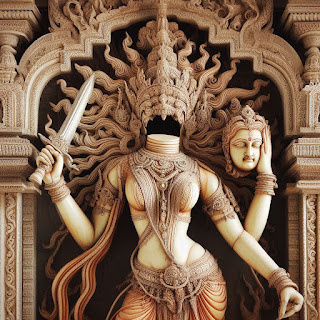Examining King Josiah's Legacy - Why I'm not a Fan
In the annals of history, certain figures are hailed as virtuous leaders, while others are marred by controversy. King Josiah of Judah, a prominent figure in biblical accounts, elicits mixed opinions among scholars and historians. While some view him as a righteous reformer, others perceive him as a flawed ruler. In this blog post, we delve into the intriguing complexities of King Josiah's reign, aiming to shed light on the reasons behind the assertion that he was, at times, an asshole.
- Ruthlessness in Religious Reforms: One of the primary criticisms leveled against King Josiah pertains to his religious reforms. While his intentions to restore proper worship and eliminate idolatry were commendable (I guess), his methods were often ruthless. Josiah's zeal led to the destruction of religious artifacts, temples, and sacred sites associated with other faiths, displaying a lack of tolerance and respect for diversity.
- Suppression of Dissent: Another aspect that has painted Josiah in a negative light is his suppression of dissenting voices. Historical accounts suggest that he suppressed prophets who did not align with his religious agenda. This authoritarian approach stifled intellectual discourse and limited the expression of alternative viewpoints, tarnishing his reputation as a just and open-minded ruler.
- Ignoring Political Realities: While Josiah sought to assert his kingdom's independence and revive ancient religious practices, he often disregarded the political realities of his time. Despite the precarious geopolitical situation, he actively pursued military campaigns against Egypt, leading to his untimely demise in the Battle of Megiddo. This disregard for political pragmatism displayed a lack of strategic foresight and brought unnecessary suffering to his people.
- Social and Economic Consequences: In his fervor for religious reform, Josiah enacted measures that had adverse social and economic consequences for his subjects. For instance, his centralization of worship in Jerusalem disrupted local religious practices and the livelihoods of priests and religious workers associated with local shrines. This upheaval likely caused hardships for many individuals and communities.
- Suppression of Mysticism and Wisdom Traditions: King Josiah's reign was marked by a fervent emphasis on the law and a strict adherence to religious orthodoxy. However, this zealous pursuit came at the cost of suppressing the rich tapestry of wisdom traditions and mystical practices that were deeply ingrained within the culture of the time. By promoting a singular, legalistic approach, Josiah stifled the spiritual diversity and denied his people the opportunity to explore alternative paths to divine connection and enlightenment.
The story of King Josiah is one of contradictions and complexities. While he is lauded by some as a righteous ruler who brought about religious renewal, others see him as an individual driven by dogmatic zeal, employing oppressive tactics and disregarding pragmatic concerns. It is essential to explore historical figures with a critical lens, acknowledging both their positive contributions and their shortcomings. By examining King Josiah's reign, we gain a deeper understanding of the complexities of leadership, reminding us that even revered historical figures can have aspects of their legacy that warrant critical analysis.



1.png)
Comments
Post a Comment